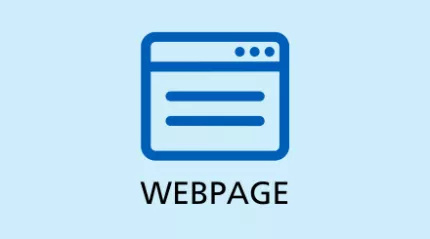After birth (postnatal)
Maternity information
On this page, there is information about:
- General information
- Care after giving birth
- Infant feeding support
- Expressing breast milk
- Medicines and healthy breastfeeding
- Bottle feeding
- Tongue tie
- Safe sleep
- Relationship building with your baby
- Your mental health and emotional wellbeing
General information

Register a birth: Overview - GOV.UK (www.gov.uk)
How to register the birth within 42 days and how to find the local register office.

Sex and contraception after birth - NHS (www.nhs.uk)
Contraception choices and tips about having sex after birth, when you're ready.

Newborn screening - Overview - NHS (www.nhs.uk)
Your newborn baby will be offered some screening tests in their first 6 to 8 weeks.

Forceps and ventouse birth aftercare
Assisted birth can be used when we have concerns about your baby's condition or for help in the final stages of labour.

Vitamin K for newborn babies to prevent vitamin K deficiency bleeding – Medicines For Children
Vitamin K is important for blood clotting but babies are born with low levels. An injection soon after birth prevents vitamin K deficiency bleeding (VKDB) which can be serious.

Our perinatal pelvic health service supports with problems during pregnancy or up to 1 year after birth, including urinary or bowel incontinence, recovery from tears, prolapse and pain.

Breastfeeding in the First Hours - Video - Global Health Media Project
This video shows early breastfeeding through the journeys of 3 newborns and ways to help you successfully breastfeed.

Attaching Your Baby at the Breast - Video - Global Health Media Project
This video shows why good attachment is so important for breastfeeding and what you can do to deeply attach your baby to your breast.

Breastfeeding and relationships in the early days video - unicef.org.uk
Relationship building and responsive breastfeeding, supporting families to get their relationship with their baby off to the best start.

Breastfeeding resources - Baby Friendly Initiative (unicef.org.uk)
These resources cover a range of issues around establishing and continuing successful breastfeeding.

Lambeth Breastfeeding Network | London | Facebook
NHS-run breastfeeding support groups in Lambeth with the latest information about local groups and events near you.

Lambeth & Southwark Breastfeeding Groups | London | Facebook
NHS-run breastfeeding support groups in Lambeth and Southwark with the latest information about local groups and events near you.

Getting started with breastfeeding - The Breastfeeding Network
Getting off to the best possible start with 4 ways to start and continue breastfeeding.

Breastfeeding Challenges - The Breastfeeding Network
Information about tongue tie, pain, latching, low milk supply, reflux, feeding all the time, and cows milk protein allergy and lactose intolerance in breastfed babies.

Mastitis Information - The Breastfeeding Network
Mastitis is when your breast becomes swollen, hot and painful.

Breastfeeding: is my baby getting enough milk?
Signs your baby is well attached and is getting enough milk.

Information about breastfeeding and formula feeding in hospital, and support with feeding after you leave hospital.

Expressing and storing breastmilk - The Breastfeeding Network
This page gives you some tips on how to hand express and store your breast milk. It also answers some frequently asked questions on this topic.

Expressing the First Milk - Global Health Media Project
You might need to express your milk until your baby is able to feed exclusively from the breast. This video shows how to express colostrum, the first milk.

Drugs in Breastmilk factsheets - The Breastfeeding Network
These factsheets have been compiled by Drugs in Breastmilk information service team of pharmacists.

Alcohol and Breastfeeding - The Breastfeeding Network
Drinking alcohol, and breastfeeding and sleeping safely.

Smoking, Smoking Cessation and Breastfeeding - The Breastfeeding Network
Smoking while breastfeeding, and support to help you stop.

How Safe Is…? Alcohol, Smoking, Medicines and Breastfeeding - The Breastfeeding Network
Leaflets to download, including the BFN factsheet about alcohol, smoking and medicines.

Infant formula and responsive bottle feeding - Baby Friendly Initiative (unicef.org.uk)
This guide provides parents who are bottle feeding with advice about how to bottle feed responsively and, for parents who are formula feeding, how to choose an infant formula.

Infant milks for parents & carers — First Steps Nutrition Trust
Evidence-based information about formula feeding.

Bottle feeding your baby - NHS (www.nhs.uk)
Information about how to bottle feed and bond with your baby, things to watch out for, and how often you should expect your baby to pee and poo.

Tongue tie clinic | Evelina London
We provide surgery for babies aged 12 weeks and under who need tongue-tie division so that they can breastfeed.

Tongue tie - The Breastfeeding Network
Information about tongue tie and links to other information and sources of support.

Infant Tongue-Tie | Tongue-Tie Practitioners
Infant feeding support organisations, and the impact a tongue-tie may have on your baby.

Caring for your baby at night leaflet - Baby Friendly Initiative (unicef.org.uk)
With important new messaging on sleep safety, this leaflet offers helpful, practical advice to parents on looking after their sleeping baby both during the day and at night.

BASIS – Baby Sleep Information Source (basisonline.org.uk)
For parents who wish to make informed choices about infant sleep and night-time care.

How to choose baby sleeping products: our evidence-based advice - The Lullaby Trust
There are a large number of sleeping products on the market so The Lullaby Trust has put together some guidelines to help you make an informed choice

Building Babies' Brains - Parent-Infant Foundation
Early relationships between babies and their parents are important for building healthy brains.

Baby Buddy app | Best Beginnings
Baby Buddy is an interactive pregnancy and parenting app providing trusted, evidence-based information and self-care tools, based on the latest research and is NHS-approved.

Why you might want to put the baby books down | Swansea University (youtube.com)
This animation by Dr Amy Brown encourages new parents to put the books down and instead be more responsive to their baby's needs.

Please read this if your baby's crying is overwhelming and you feel unable to cope, or are worried you might shake your baby. This advice about crying and comforting is designed to help parents and carers at the time they need it most.

Relationship building resources - Baby Friendly Initiative (unicef.org.uk)
Supporting close and loving relationships between parents and babies.

Skin-to-skin contact - Baby Friendly Initiative (unicef.org.uk)
Helping babies adjust to life outside the womb, starting breastfeeding and developing close, loving relationships.

Mental health and well-being | UNICEF Parenting
Common conditions such as postpartum depression and anxiety, and a mental health quiz.
Last reviewed: March 2024
Next review: March 2027
